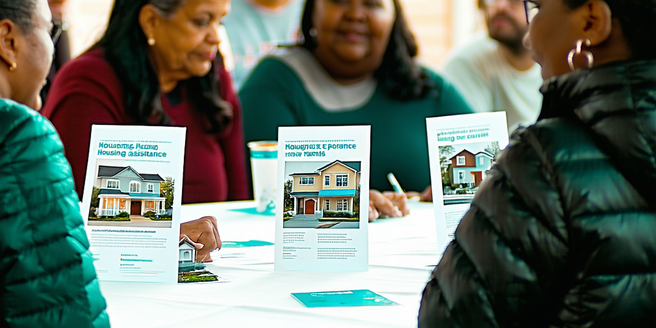Low-cost Housing Tips

Understanding Affordable Housing Options
Navigating the maze of affordable housing options can be challenging, but understanding the fundamentals can make the journey smoother. Start by identifying your target area and researching local housing assistance programs. Affordable housing often includes subsidized housing, government initiatives, and nonprofit resources. Many local governments also offer workshops and seminars to educate potential renters and buyers on available programs. Key programs like the Housing Choice Voucher Program (Section 8) and Low-Income Housing Tax Credit (LIHTC) are instrumental in providing affordable leasing and home-buying opportunities. Additionally, connecting with local housing authorities and nonprofit organizations can provide valuable insights and guidance tailored to your situation.
Budget-Friendly Home Design Tips
Transforming your home on a budget doesn’t have to mean compromising on style. Begin by focusing on the essentials: paint, lighting, and furniture layout. A fresh coat of paint is an inexpensive way to breathe new life into your space; opt for neutral tones that create a sense of openness. Maximizing natural light with strategically placed mirrors can enlarge a room’s feel without the high cost of renovations. Thrift stores and flea markets are great resources for finding unique furniture pieces at a fraction of the price. Remember, minimalism is not only an aesthetic choice but also a money-saving strategy.
Innovative Materials for Low-cost Homes
Innovative materials can drastically reduce the cost of building a home while ensuring long-lasting quality. Engineered wood products like cross-laminated timber (CLT) offer strength and sustainability. Recycled materials such as steel and plastic composites can also provide durability at a lower cost. New technologies are continually expanding the possibilities for using these innovative resources. Rammed earth and straw bale are eco-friendly alternatives that offer natural insulation. By opting for these materials, builders can achieve significant savings without sacrificing structural integrity or design. Staying informed about emerging materials in the construction industry can open doors to affordable home-building solutions.
DIY Projects to Cut Housing Costs
DIY projects can be a game-changer for reducing housing expenses and adding personal touches to your home. Simple projects like creating custom shelving, repainting cabinets, or crafting furniture from pallets allow you to personalize your space affordably. Online tutorials and community workshops offer guidance and inspiration, making DIY more accessible than ever. Additionally, sourcing materials from local stores or reuse centers can further cut down costs. By learning basic skills in carpentry, plumbing, or electrics, you can tackle small repairs and upgrades yourself, avoiding costly professional services. Remember, the key to successful DIY is planning, patience, and a willingness to learn new skills.
Maximizing Energy Efficiency on a Budget
Energy efficiency doesn’t have to come with a high price tag. Start by investing in energy-efficient appliances and LED lighting, which, although initially costly, save money in the long run through reduced utility bills. Simple actions like sealing windows and adding insulation can significantly reduce energy loss. Implementing smart home technology allows for better control of energy consumption. Furthermore, educating the household on energy-saving practices can enhance the overall efficiency. Small adjustments, such as using energy-efficient showerheads and turning off appliances when not in use, accumulate into significant savings over time. Adopting these strategies contributes to a more sustainable lifestyle and lower energy costs.
Finding Financial Assistance for Affordable Housing
Securing financial assistance can make affordable housing more accessible. Start by exploring federal programs like the HUD’s Housing Choice Voucher Program and USDA Rural Development programs. State and local government initiatives often provide additional avenues for funding. Nonprofit organizations are also instrumental, offering grants and financial counseling. For veterans, programs such as the VA loan guarantee can provide substantial help in purchasing a home. Staying informed and proactive in seeking out these resources is crucial. Networking with housing advocates and joining support groups can further guide you through the available options and application processes.